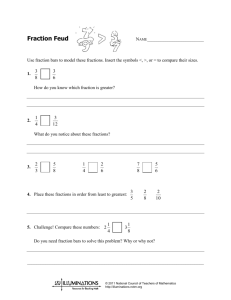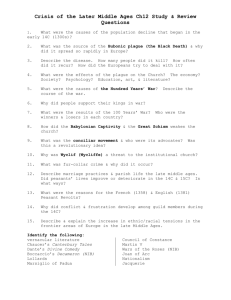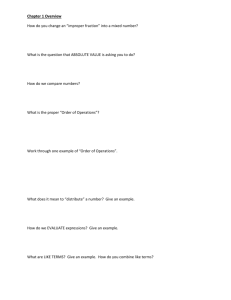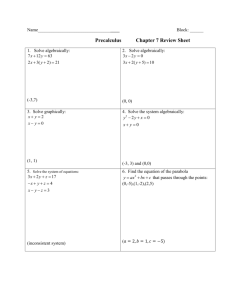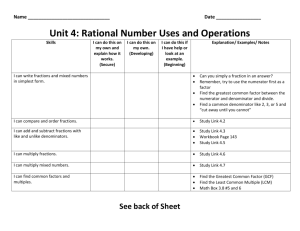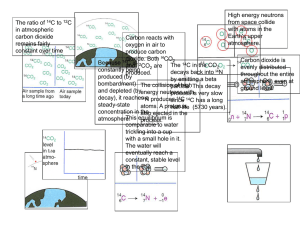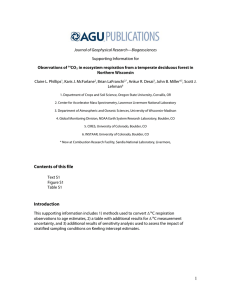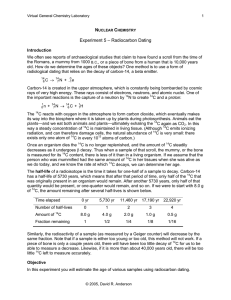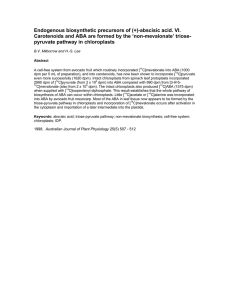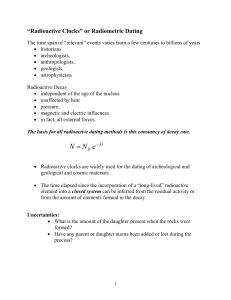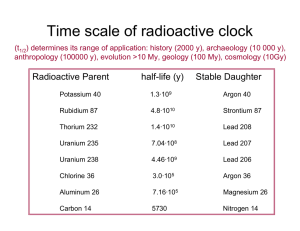Page 1 Section 8.4: Integration of Rational Functions by Partial Fractions 3 4
advertisement
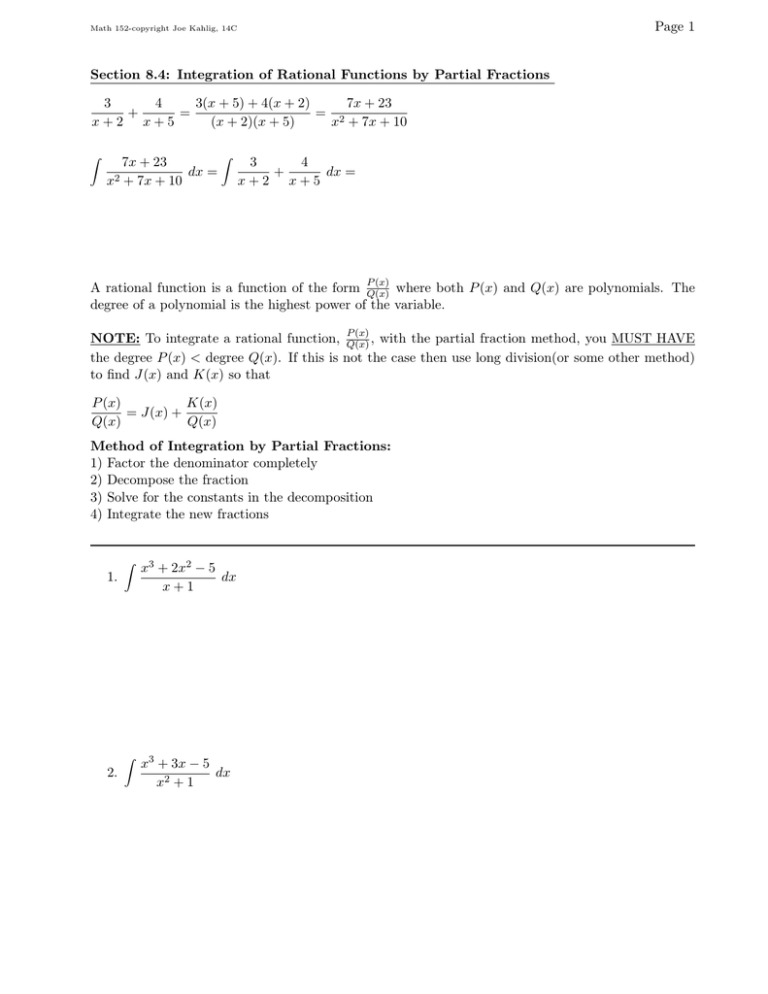
Page 1 Math 152-copyright Joe Kahlig, 14C Section 8.4: Integration of Rational Functions by Partial Fractions 3 4 3(x + 5) + 4(x + 2) 7x + 23 + = = 2 x+2 x+5 (x + 2)(x + 5) x + 7x + 10 Z 7x + 23 dx = x2 + 7x + 10 Z 3 4 + dx = x+2 x+5 P (x) where both P (x) and Q(x) are polynomials. The A rational function is a function of the form Q(x) degree of a polynomial is the highest power of the variable. P (x) NOTE: To integrate a rational function, Q(x) , with the partial fraction method, you MUST HAVE the degree P (x) < degree Q(x). If this is not the case then use long division(or some other method) to find J(x) and K(x) so that P (x) K(x) = J(x) + Q(x) Q(x) Method of Integration by Partial Fractions: 1) Factor the denominator completely 2) Decompose the fraction 3) Solve for the constants in the decomposition 4) Integrate the new fractions Z x3 + 2x2 − 5 dx x+1 Z x3 + 3x − 5 dx x2 + 1 1. 2. Math 152-copyright Joe Kahlig, 14C Page 2 Write out the partial fraction decomposition. Do not determine the numerical values of the coefficients. 3. x3 5x + 4 + 3x2 − 10x 4. x−3 x(x + 1)3 (x2 + 5) 5. x2 + 2 (x2 − 9)(x2 + 16)2 Math 152-copyright Joe Kahlig, 14C Compute these integrals. Z 6. x3 Z 7. 5x + 4 dx + 3x2 − 10x x+2 dx x3 + 2x Page 3 Math 152-copyright Joe Kahlig, 14C Z 8. 15x + 5 dx (x + 2)2 (x2 + 1) Page 4
